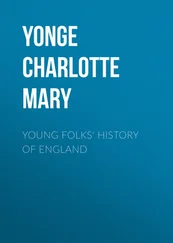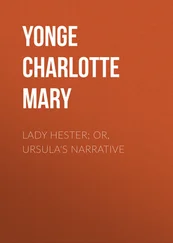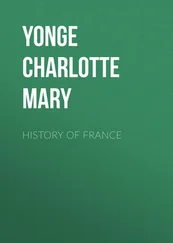Charlotte Yonge - Cameos from English History, from Rollo to Edward II
Здесь есть возможность читать онлайн «Charlotte Yonge - Cameos from English History, from Rollo to Edward II» — ознакомительный отрывок электронной книги совершенно бесплатно, а после прочтения отрывка купить полную версию. В некоторых случаях можно слушать аудио, скачать через торрент в формате fb2 и присутствует краткое содержание. Жанр: foreign_humor, Юмористические книги, literature_19, foreign_antique, на английском языке. Описание произведения, (предисловие) а так же отзывы посетителей доступны на портале библиотеки ЛибКат.
- Название:Cameos from English History, from Rollo to Edward II
- Автор:
- Жанр:
- Год:неизвестен
- ISBN:нет данных
- Рейтинг книги:4 / 5. Голосов: 1
-
Избранное:Добавить в избранное
- Отзывы:
-
Ваша оценка:
- 80
- 1
- 2
- 3
- 4
- 5
Cameos from English History, from Rollo to Edward II: краткое содержание, описание и аннотация
Предлагаем к чтению аннотацию, описание, краткое содержание или предисловие (зависит от того, что написал сам автор книги «Cameos from English History, from Rollo to Edward II»). Если вы не нашли необходимую информацию о книге — напишите в комментариях, мы постараемся отыскать её.
Cameos from English History, from Rollo to Edward II — читать онлайн ознакомительный отрывок
Ниже представлен текст книги, разбитый по страницам. Система сохранения места последней прочитанной страницы, позволяет с удобством читать онлайн бесплатно книгу «Cameos from English History, from Rollo to Edward II», без необходимости каждый раз заново искать на чём Вы остановились. Поставьте закладку, и сможете в любой момент перейти на страницу, на которой закончили чтение.
Интервал:
Закладка:
Wulstan had always been a church-builder, and he renewed his cathedral after the Norman fashion; but when it was finished, and the workmen began to pull down the old one, which had been built by St. Oswald, he stood watching them in silence, till at last he shed tears. “Poor creatures that we are,” said he, “we destroy the work of the saints, and think in our pride that we improve upon it. Those blessed men knew not how to build fine churches, but they knew how to sacrifice themselves to God, whatever roof might be over them, and to draw their flocks after them. Now, all we think of is to rear up piles of stones, while we care not for souls.”
Wulstan lived to a great age, survived William and Lanfrane, and assisted to consecrate Anselm. In the last year of his life he kept each festival with still greater solemnity than ever, and his feast for the poor overflowed more than ever before; his stores were exhausted, though he had collected an unusual quantity, and his clergy begged him to shut the gates against the crowds still gathering; but he refused, saying none should go empty away, and some gifts from his rich friends arrived opportunely to supply the need. The Bishop sat in the midst as feasting with them, now grown too feeble to wait on them, as he had always done hitherto.
At Whitsuntide, 1094, he was taken ill, and lingered under a slow fever till the new year, when he died in peace and joy on the 19th of January. His greatest friend, Robert, the Bishop of Hereford, a learned man, understanding all the science of the time, a judge, and a courtly Lorrainer, yet who loved to spend whole days with the unlettered Saxon, came to lay him in his grave. He received, as a gift from the convent, the lambskin cloak that Wulstan used to wear, in spite of the laughter of the gay prelates arrayed in costly furs, keeping his ground by saying, that “the furs of cunning animals did not befit a plain man.” He went home to Hereford, and soon after died, having, it is said, been warned in a vision by St. Wulstan that he must soon prepare to follow him.
CAMEO X. THE CONQUEROR. (1066-1087.)
In speaking of William, the Norman Conqueror, we are speaking of a really great man; and great men are always hard to understand or deal with in history, for, as their minds are above common understandings, their contemporary historians generally enter into their views less than any one else, and it is only the result that proves their wisdom and far-sight. Moreover, their temptations and their sins are on a larger scale than those of other men, and some of the actions that they perform make a disproportionate impression by the cry that they occasion—the evil is remembered, not the good that their main policy effected.
William was a high-minded man, of mighty and wide purposes, one of the very few who understood what it was to be a king. He had the Norman qualities in their fullest perfection. He was devoutly religious, and in his private character was irreproachable, being the first Norman Duke unstained by licence, the first whose sons were all born of his princess wife. He was devout in his habits, full of alms-deeds; and strong and resolute as was his will, he kept it so upright and so truly desirous of the Divine glory and the Church’s welfare, that he had no serious misunderstanding with the clergy, and lived on the most friendly terms with his great Archbishop, Lanfranc.
He was one of those mighty men who, in personal intercourse, have a force of nature that not merely renders opposition impossible, but absolutely masters the will and intention, so that there is not even the secret contradiction of mind. We have seen this in his dealings with both his own Normans and the Saxons who came in contact with him. His presence was so irresistible that men yielded to it unconsciously, but when absent from him they became themselves again, and in the reaction they committed treason against the pledges they seemed to have voluntarily given to him.
He was stern, fiercely stern. His standard and ideal were very high, such as, perhaps, only the saintly could attain to. The men who never quarrelled with him were Lanfranc, Edgar Atheling, and William Fitzosborn. The first was saintly and strong; the second, honest, upright, and simple; the third was endeared by boyish memories, and to these, perhaps, may be added Edward the Confessor and good Bishop Wulstan.
Many others William tried to love and trust—his uncle Odo, his own son, Earls Edwin and Morkar, Waltheof, the sons of Fitzosborn; but they all failed, grieved, and disappointed him. None was strong, noble, or disinterested enough not at one time or other to be a traitor; and, perhaps, his really honest, open enemy, Hereward le Wake, was the person whom he most valued and honored after the above mentioned.
And though his affection was hearty, his wrath when he was disappointed was tremendous. And his disappointments were many, partly because his standard was in every respect far above that of the men around him, and partly because his presence so far lifted them to his level, that, when they fell to their own, he was totally unprepared for the treachery and deceit such a fall involved.
Then down he came on them with implacable vengeance, he was so very “stark,” as the old chronicle has it. Battle, devastation, plunder, lifelong imprisonment, confiscation, requited him who had drawn on himself the terrible wrath of William of Normandy. There were few soft places in that mighty heart; it could love, but it could not pity, and it could not forgive. He was of the true nature to be a Scourge of God.
Hardened and embittered by the selfish treasons that had beset his early boyhood, and which had forced him into manhood before his time, he came to England as one called thither by the late king’s designation, and, therefore, the lawful heir. The Norman law, a confusion of the old Frank and Roman codes, and of the Norwegian pirate customs, he seems to have been glad to leave behind. His native Normans must be ruled by it, but he was an English king by inheritance, and English laws he would observe; Englishmen should have their national share in the royal favor, and in their native land.
But the design proved impracticable. The English had been split into fierce parties long before he came, and the West Saxon, the Mercian Angle, and Northumbrian Dane hated one another still, and all hated the Norman alike; and his Norman, French, and Breton importations lost no love among themselves, and viewed the English natives as conquered beings, whose spoil was unjustly withheld from them by the Duke King.
Rebellion began: by ones, twos, and threes, the nobles revolted, and were stamped out by William’s iron heel, suffering his fierce, unrelenting justice—that highest justice that according to the Latin proverb becomes, in man’s mind at least, the highest injustice. So England lay, trampled, bleeding, indignant, and raising a loud cry of misery; but, in real truth, the sufferers were in the first place the actual rebels, Saxon and Norman alike; next, those districts which had risen against his authority, and were barbarously devastated with fire and sword; and lastly, the places which, by the death or forfeiture of native lords, or by the enforced marriage of heiresses, fell into the hands of rapacious Norman adventurers, who treated their serfs with the brutal violence common in France.
Otherwise, things were left much as they were. The towns had little or no cause of complaint, and the lesser Saxon gentry, with the Franklins and the Earls, were unmolested, unless they happened to have vicious neighbors. The Curfew bell, about which so great a clamor was raised, was a universal regulation in Europe; it was a call to prayers, an intimation that it was bedtime, and a means of guarding against fire, when streets were often nothing but wooden booths thatched. The intense hatred that its introduction caused was only the true English dislike to anything like domiciliary interference.
Читать дальшеИнтервал:
Закладка:
Похожие книги на «Cameos from English History, from Rollo to Edward II»
Представляем Вашему вниманию похожие книги на «Cameos from English History, from Rollo to Edward II» списком для выбора. Мы отобрали схожую по названию и смыслу литературу в надежде предоставить читателям больше вариантов отыскать новые, интересные, ещё непрочитанные произведения.
Обсуждение, отзывы о книге «Cameos from English History, from Rollo to Edward II» и просто собственные мнения читателей. Оставьте ваши комментарии, напишите, что Вы думаете о произведении, его смысле или главных героях. Укажите что конкретно понравилось, а что нет, и почему Вы так считаете.












